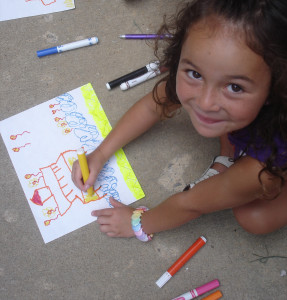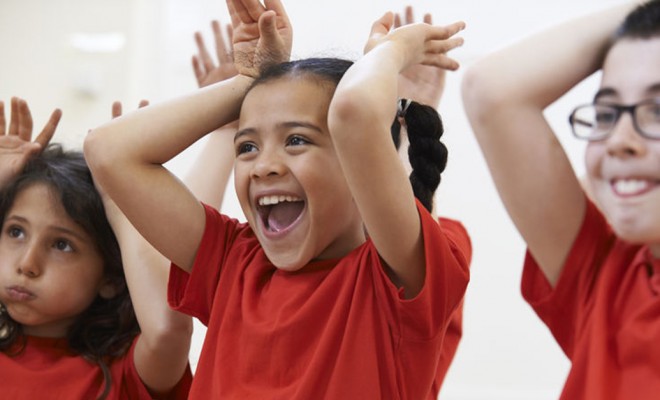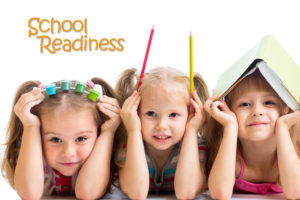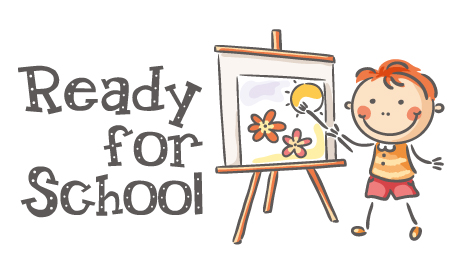
Parent Resources
This page will be updated continually as needed.
This page contains relevant information for parents including articles, tips and links to valuable documents and information.
You can also find relevant articles, tips and advice on our Facebook Page: https://www.facebook.com/leapaheadlearningwithkerynjohnson/?ref=aymt_homepage_panel
and our Pinterest Page: https://au.pinterest.com/johnsonkerynp1/
As we are here to help you, if you require information on a particular child-related topic, please just ask, as with over 30 years of teaching experience, Keryn has gathered a lot of valuable resources. She is only too happy to share them with you!
List of resources below:
- Additional Needs in Children including Dyslexia
- Social Skills and Children on the Spectrum
- School Readiness
- What's Important in Making Sure that a Child is 'School Ready'
- Keryn's School Transition Top Tips
- Fine Motor Skill Development - What you can do at home
- Feeder Schools
1. Information for Parents of Children with Additional Needs and Information on Dyslexia
Please download the pdf below:
2. SOCIAL SKILLS AND CHILDREN ON THE SPECTRUM
The following article is written by a mother of a girl who we have been lucky enough to have in our Corroboree Group during 2016. It explains explicitly the social challenges that children on the spectrum have and tips on how to help them. An EXCELLENT article and well worth reading!
http://www.firstdiscoverers.co.uk/children-autism-social-interaction/#comment-224


3. School Readiness Videos:
This first video is a MUST SEE presentation by Exercise Physiologist and Developmental Educator, Robyn Papworth. It pinpoints what is needed FOR school readiness to be achieved. Children will not be able to focus and concentrate. hold a pencil, sit at a desk, etc., if they have not achieved the required precursor Development Milestones prior to starting school. She speaks about the left and right hemisphere brain balance as well. These milestones outweigh all academics.https://youtu.be/-j0bdi9BDMs
Watch this 2nd video for tips on school readiness:
Click this link to see 'School Readiness Video 3'


4. What's important in making sure a child is 'School Ready':
Parents are often confused when the topic of 'School Readiness' comes up. What does it actually mean? Does it equate to a child's general cognitive abilities or is something else? This article was written by Kath Walker (OAM and a leading parenting and education expert, public speaker and author) pinpoints that being 'school ready' is not just about the academics but that social and emotional ‘readiness’ are the most important factors.
https://www.earlylife.com.au/sites/default/files/School%20Readiness_0.pdf
This blog also supports what Kathy Walker has to say. https://mumcentral.com.au/is-my-child-ready-for-school/
Early Childhood Australia contains some fact sheets on various topics that assist with school readiness and overall development, such as resilience, friendships, etc. http://firstyear.earlychildhoodaustralia.org.au/resources/additional-online-material/
Here are some other interesting and thought-provoking articles on school readiness:
~What Skills Does a Child Need to be 'School Ready'
5. The decision has been made and they're off to school: Keryn’s ten top tips for a smoother school transition:
After teaching Prep and Pre-Prep for 30 years I've had lots of gorgeous cherubs start their school life with me. I have learned that all children are different and those first few days of school can bring utter joy for some children, but be utterly terrifying for others. Fears or misunderstandings of the unknown are very real. Having some systems in place, like the following ideas, prior to starting school, truly helps.
1. Take your child to your chosen school before the start of the school year for a play in the playground. If there is a specified 'Prep'/'Foundation' playground and you can take them to that particular playground; even better. See if you can find their classroom and show them where their closest outside toilet will be. (Of course, always attend the school transition days and if possible, any of the other special events that your child's new school may have such as fairs, even school assemblies, productions and any offerings they have available to preschoolers such as story or music sessions, etc.)
2. Talk to them about the different toileting system – girls and boys have separate toilets which is often different to kinder and talk to them about shutting the door when they are in the toilet - you could even practice this at a local shopping centre (which usually have the same locking system and of course, have separate male and female toilets).
3. Get them to practice wearing their school uniform/hat and using their lunch box. Having a special key ring or bag-tag on their bag will make it easier for them to find it among all the other identical school bags.
4. Get them used to recognising their name and if possible, writing their name (with a capital letter at the start and lower case letters to follow. Most Victorian Schools will use the Victorian Modern Cursive font for writing. You can download it for free via the Department of Education's website: https://www.education.vic.gov.au/school/teachers/teachingresources/discipline/english/Pages/handwriting.aspx ). Remember to encourage correct pencil grip, too: https://www.rch.org.au/uploadedFiles/Main/Content/ot/InfoSheet_A.pdf
5. Read to your child every day and discuss the book prior (what the book may be about by looking at the cover and pictures), during the reading (what may happen next) and at the end (what happened, what was your favourite part, retell in your own words, etc.). This will encourage comprehension, book 'language' and increase vocabulary as well as creating lovely memories! It's also VITAL for your child to continually develop their oral language and sharing books/stories is a great way to increase their general vocabulary.
6. Get children used to being away from you including for larger periods of time. Encourage smooth separation. If they are upset, you need to separate as quickly as possible. The longer you remain, the more upset (and the longer the child remains upset). It truly is like ripping a bandaid off, the quicker the separation is, the better!
7. Develop independent skills such as how to pack/unpack their bag, dressing, toileting, washing hands, how to ask for something they need, etc. Also, show them the difference between 'play lunch/snack' and 'lunch' and that they don't eat all their food at the fist eating time. Find out from your school if your child will be eating their snack first, or their lunch and tell your child what can be eaten first in line with how the school organises their eating schedules. You can even place a number '1' or '2' on the containers to start with.
8. Have a good sleep routine in place – a tired child will find the start of the school year very tricky! Especially as Melbourne always seems to start it's second phase, and much hotter phase, of summer just in time for school return!
9. Write a story together about starting school – take photos of them at their new school, in their uniform, with their lunch box, etc. Discuss all the new experiences that school will offer - new friends, the playtimes outside, having specialist teachers e.g., P.E., art, maybe a language and any other subject that your school may offer - gardening, science, music, library, etc. There are many social story templates that you can upload and put your own photos and edit the text in. There are many on Teachers Pay Teachers
10. If possible, organise a play date/s with a child/some children they will be attending school with. Having a/some familiar faces when they start school can help.
6. Fine Motor Skills Development and tips on how you can help your child at home:
https://smartparentadvice.com/fine-motor-skills/
MORE tips on transitioning to school can be found on two government department webpages: STARTING BLOCKS and FUSE For Parents and ABC Education (with lots of parent articles, too).
7. Feeder Schools:
Whilst most of our enrolments come from within Banyule Council's local area, we occasionally have enrolments from outside the Banyule Local Government Area. This means that we may have children attending different schools than the ones listed below, but the below schools are our main feeder schools. They are listed in no particular order:
- Montmorency South Primary School: http://www.montysouth.vic.edu.au/
- St Francis Xavier Primary School: https://www.sfxmontmorency.catholic.edu.au
- Greenhills Primary School: https://www.greenhillsps.vic.edu.au/
- Apollo Parkways Primary School: http://www.apolloparkps.vic.ed u.au/
- Eltham Primary School: http://elthamps.vic.edu.au/
- Streeton Views Primary School: http://www.streetonps.vic.edu.au/
- St Martin de Tours Primary School: http://www.smrosanna.catholic.edu.au/
- Glen Katherine Primary School: http://www.glenkps.vic.edu.au/
- Eltham North Primary School: http://www.elthamnorthps.vic.edu.au/
We recommend that parents contact schools early in the first term prior to the year they are going to enrol in, to book into a tour. Before attending a tour, have a look at the school's website and think about what is important for you about a school. Is it the academics? Is it having a well-being or Social and Emotional Program (SEL)? Is it being sustainable and possibly having a kitchen garden program? Having your questions ready and giving thought to what you really value in a school will assist you when you are presented with a lot of information at a school. You must remember, that in most cases, the school wants your enrolment, unless their numbers are high, so you want to ask the hard-hitting questions to make sure the school is the right fit for you. Most schools will have their enrolments finalised around April or May in the year prior to attendance so it is important to get in early.
